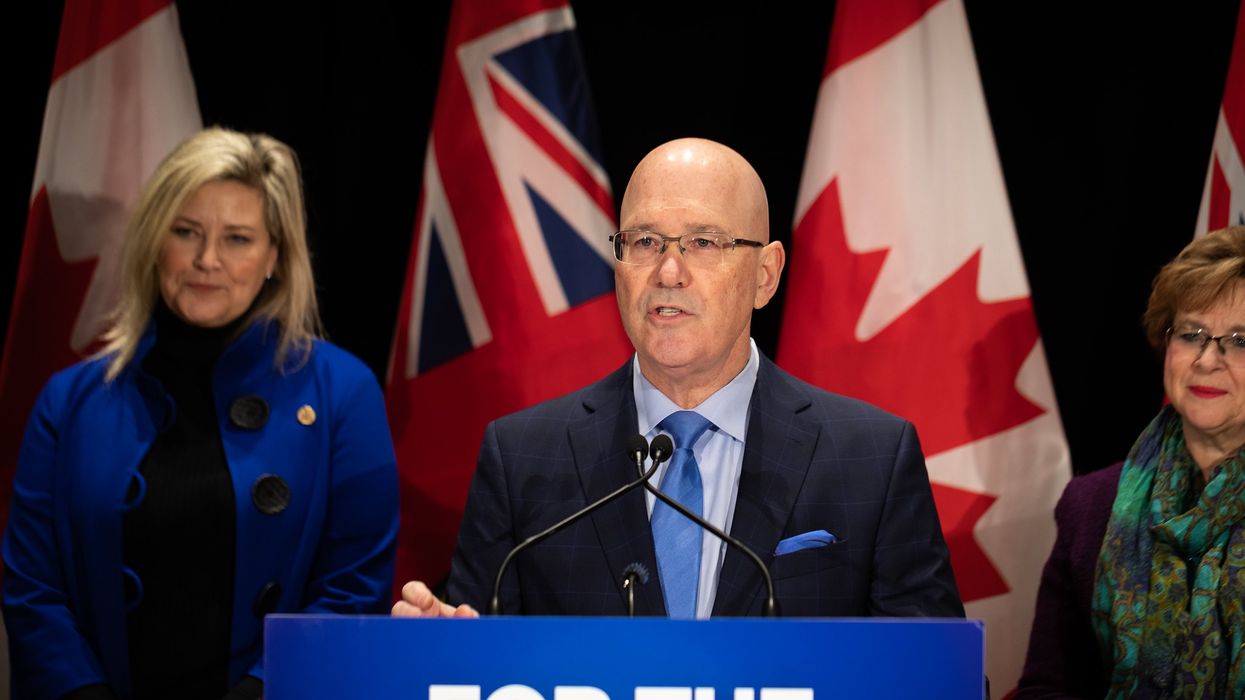Municipal Affairs and Housing Minister Steve Clark announced on Thursday that he was tabling housing legislation that could mean big changes for the GTA housing market.
"We will address the 'missing middle' shortage by making it easier to build different types of housing — from single, detached homes, to townhouses, to mid-rise rental apartments, second units and family-size condos," Clark said, in an announcement in Scarborough on Thursday. "We need to encourage builders to build the types of housing people actually need."
READ: Who’s Really To Blame For Toronto’s Affordability Crisis?
One of the main ways the government plans to do this is by making changes to the Local Planning and Appeal Tribunal (LPAT), which replaced the Ontario Municipal Board (OMB) in the spring of 2017.
The OMB was an independent tribunal that adjudicated development disputes. While some in the industry felt it was a necessary part of getting developments approved in a timely manner, others argued that it took the planning process out of the hands of local government.
The Wynne government created the LPAT in an effort to provide the municipal government with a greater say in which developments could be approved. Now, the Ford government is proposing a change which would once again allow the LPAT, not the municipal government, to have the final say in major development disputes.
READ: City Wants More Money From Condo Developers, But Buyers Will Pay For It
At the announcement, Clark said that the changes were intended to reduce delays in the development process, as Toronto’s backlog of cases currently sits at 100,000.
The change was welcomed by some, including Dave Wilkes, president and CEO of the Building Development and Land Development Association (BILD), which has long lobbied for this sort of policy.
“The challenge is a basic one,” said Wilkes, in a statement. “Previous government policies and procedures have created structural barriers to the efficient operation of the housing market which has resulted in a generational shortfall of housing...It just takes too long to build new housing in the GTA. This restricts supply and negatively impacts affordability...Today, the Ford government has signalled its intent to address this problem to ensure that the right type of housing is built at the right price across the Greater Toronto Area.”
READ: Here Are 3 Strategies To Achieve Housing Affordability In Toronto
Others criticized the move, saying it placed the power back in the hand of developers, to the detriment of proper city planning.
“Ontario residents will soon directly pay for developers profits,” wrote University-Rosedale city councillor Mike Layton, on Twitter. “[This announcement] will hand power to developers and cut development charges that help cities service new developments, so all of us will pay for it.”
“Fact is, developers have lots of power in [the] current system and are doing quite well for themselves,” he continued. “Leading North America in cranes, Toronto has not impeded development, but we don’t get rolled over either. We fight to make developers build communities. This is under threat.”
Changes to the LPAT weren’t the only part of Clark’s announcement. The government is also proposing that the creation of secondary suites — such as rental units constructed in laneways or over garages — be allowed, in order to boost housing supply in areas with low housing supply.
Additionally, developers charges for building rental and not-for-profit housing will be delayed, with payment being accepted in installments over a five-year period.
More details are still to come, as Clark has only announced the new legislation, and has yet to table it.





















